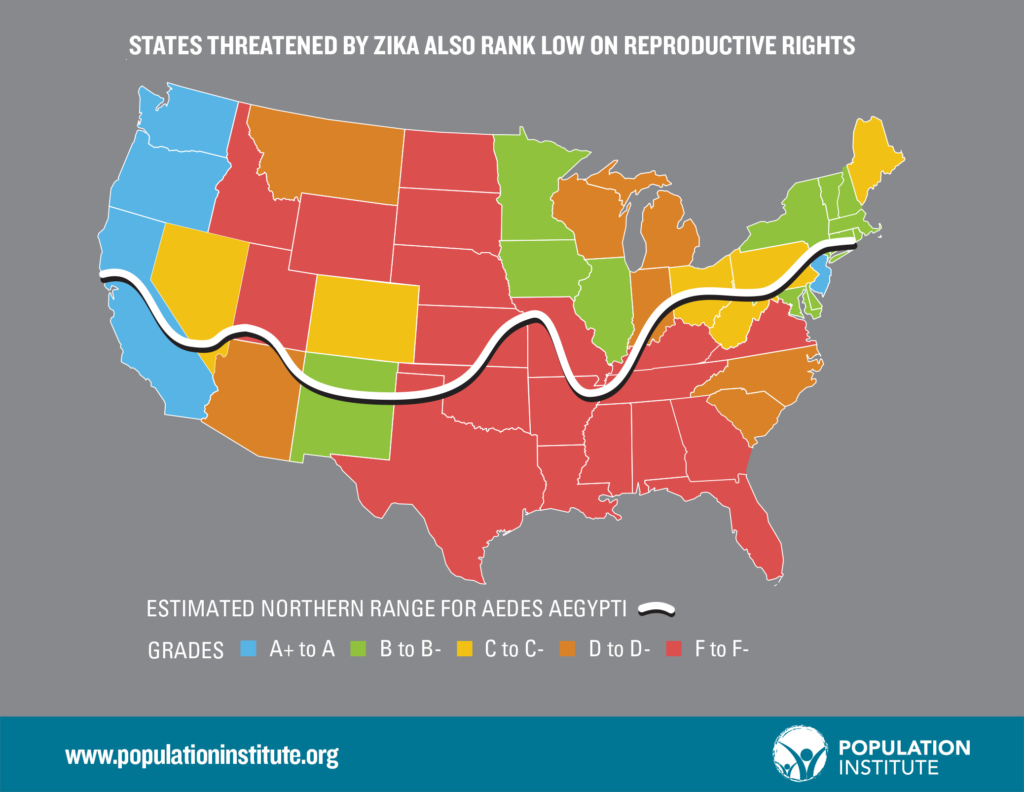Lack of adequate funding is not the only hurdle to fighting the Zika virus. Many of the areas threatened by Zika—both inside and outside the U.S.—lack adequate access to reproductive health care. Every woman, wherever she lives, deserves access to a full range of reproductive health services and information. That was true before the Zika virus and it is even truer today with the spread of Zika.
In Latin America, many countries severely restrict abortion access, denying women their right to terminate a pregnancy and the poor often lack access to contraceptive services. In the United States, many of the states in the areas potentially affected by Zika are given low grades for reproductive health and rights. Dozens of family planning clinics in Gulf States, including Texas, have been forced to close because of cuts in government support for family planning and political assaults on Planned Parenthood. In these states, women—particularly low-income women—may have more limited access to family planning clinics and abortion services than women in other parts of the country.
Here’s a look at how states potentially affected by Zika rank on reproductive health and rights:
